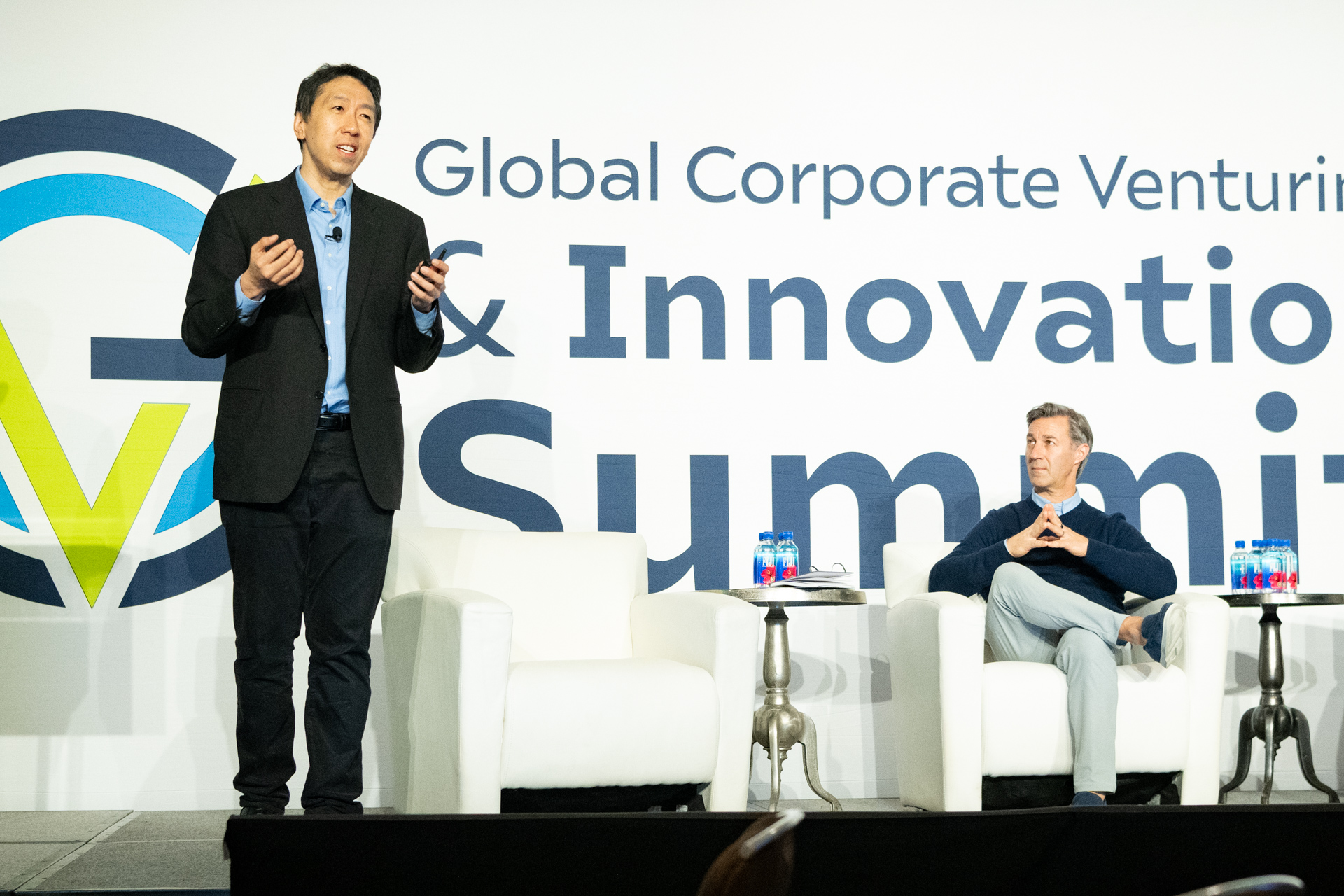
Corporations should let their corporate venture ams navigate them through this current period of uncertainty around generative AI, says artificial intelligence pioneer Andrew Ng.
Companies are still unclear how to use generative AI, said Ng, speaking at the GCVI Summit this week. The two main things they want from the technology involves improving productivity and gaining a unique advantage. But narrowing down how to do this is still difficult.
Ng, who co-founded Google Brain, now leads a venture studio called AI Fund and says he may typically approach potential corporate partners with 10 or 15 ideas they might find useful.
“And it turns out that out of that 10 or 15 there will be five good ideas,” Ng says. “But one thing you find – and you see this everywhere – the mothership will want all five, but they don’t want to pay to develop all five in-house.
“So, the very rational [decision] is to let someone else pay for the company to enjoy the benefit without having to house it entirely within their ownership. This is where I see CVCs… playing a meaningful role.”
How CVCs should invest in generative AI
Because generative AI is still so new, most of the time what a company wants does not exist in the market yet. But while it may be attractive to follow the hype and chase the large gen AI technology startups, Ng believes it makes far more sense to target the next layer.
“Whenever there is a new wave of technology, which you have with generative AI, the media and social media likes to talk about the technology layer – OpenAI, Anthropic, Google, AWS, the companies building the technology – and so it’s tempting to put money into that,” he says.
The problem is the high valuations that come with those big names. But for those technology providers to be successful, the applications built on top need to be even more successful in order to generate the revenue to pay for the tech development.
“So, a lot of the best opportunities for CVCs are not to invest just in the generic technology layer, but to go and find the unique applications now possible because of this technology,” Ng says.
“And the media doesn’t talk as much about those companies, which is great because valuations maybe aren’t as crazy. That is also where the CVC adds more value, both for the company that’s getting the investment and for the mothership.”
However, while he is an AI expert, Ng wants to work with corporates because they are experts in their fields, and they can end up building prototypes of products and find market validation, whether that’s in financial services or large-scale shipping. And the CVCs can provide the link.
“There is a process I’m seeing multiple CVCs execute to find the really meaningful things, more than just going out and buying Microsoft Copilot,” Ng says. “But what is unique to your business and adds distinctive value and a unique advantage.”
